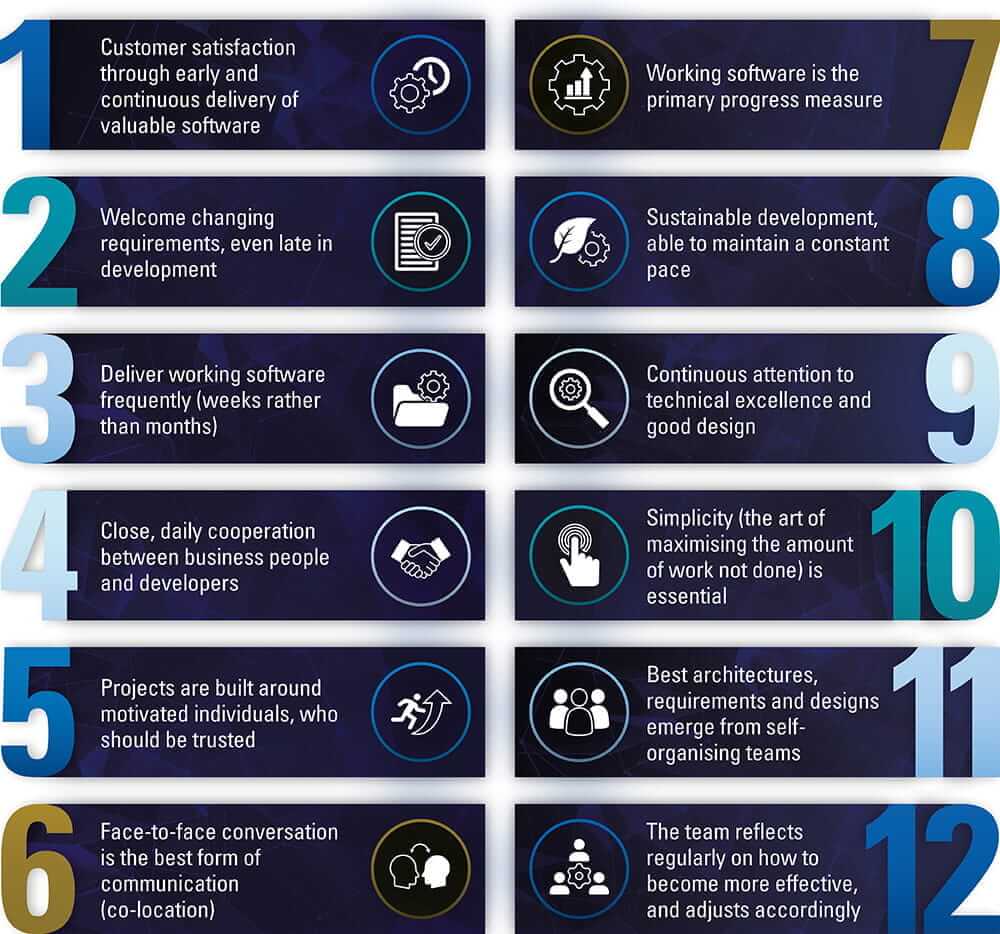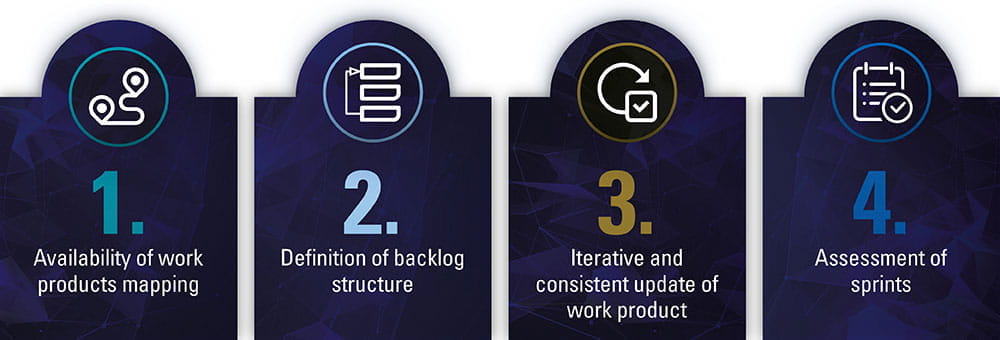
卫用Successfully achieving the safety and flexibility balance
格嘁Successfully achieving the safety and flexibility balance
雹税”Agile product development delivers a competitive advantage in a rapidly evolving global market. Its ability to create and respond rapidly to change may appear to be diametrically opposed to the requirements of functional safety, but the agile development and safety process world do not have to be mutually exclusive.”
Claudio Gregorio
铝矢
Department Manager Functional Safety Software at TÜV SÜD
Tuesday, October 10, 2019
Agile software development principles use an iterative approach, so that solutions can be adapted to meet rapidly evolving needs and deliver competitive advantage. The Manifesto for Agile Software Development defines the 12 principles for success:

趋外Scrum is the most widely used agile development process framework and has the core aim of maximising the amount of productive time available. Focusing on the three categories of ‘Roles’, ‘Artefacts’, and ‘Time Boxes’, Scrum can significantly increase productivity and allows end-users to meet the rapidly changing requirements of evolving business goals. Other agile methodologies include 柄挤Lean and Kanban, Extreme Programming (XP), Crystal, Dynamic Systems Development Method (DSDM) and Feature Driven Development (FDD). While these methodologies 尽由share much of the same characteristics, each has its own unique mix of practices, terminology, and tactics.
The flexible nature of agile development projects presents a challenge when functional safety standards are considered within the development process. While agile development enables rapid paced development, this must be achieved in tandem with all necessary functional safety and quality requirements, such as IEC 61508, which follow a linear phase-based process model.
麦回IEC 61508 adopts the V-model as a reference, which mandates that a set of 叁溅processes must be implemented and documented in a sequential manner or ‘V-shape’. For every phase in the development cycle there is a corresponding 床蜘verification activity needed. The next phase can only be started (from a logical process point of view) after full completion of the previous one. Trying to work using agile development principles, while meeting the demands of 售白functional safety standards can therefore present significant challenges.
The table below highlights 货奠the potential functional safety development challenges relating to some of the principles of agile software development.

忍捡To ensure that functional safety can be achieved in the new agile development world, there are some important points that must be considered. Some of these challenges, and corresponding recommendations for improvement, are outlined below.

芍钉Firstly, all the documented work products, such as verification reports, should be made available as required by the standard. It is therefore recommended to continuously create and update them, right from the very start of the agile development process.
屎蜓Even if the backlog of changing requirements (Principle 2) is only available via a tool, the work product requirements defined by the safety standard 呢贮can still be met. The structure of the backlog should therefore be defined, and a formal requirement specification document created based on the backlog.
怎撬To comply with the V-Model requirements of the standard, it is entirely possible to create a documented evidence overview based on partial results. If development artefacts (documentation, products, etc.) are only iteratively created, processes must ensure that they remain consistent for every ‘working’ release.
幅文To avoid project risks in a later phase, the intermediate documentation should be created in each sprint, as an assessment would be required. This will enable the intermediate version of the documentation to remain consistent. The intermediate assessments are not mandatory but recommended. They can complement and support the agile development process by providing early feedback and allowing timely corrections (in line with the “development accompanying” philosophy of the standard).
While functional safety has become a critically important issue, growing digitalisation is demanding more rapid and profitable product development approaches. 劝堪However, an agile team does not work without a process, so the Agile Development and safety process worlds do not have to be mutually exclusive. TÜV SÜD’s international team of experts understand the complexities faced by industry and offers proven capabilities that will support you to create a competitive advantage in an increasingly agile world. If you would like to learn more about further challenges and solutions, and how to overcome them, please get in contact with our expert team directly via functional-safety@tuvsud.com

酗漠A compact overview of the functional safety regulation landscape
Learn more

售樊Learn about current trends and challenges and get an overview about opportunities offered by functional safety.
Learn more

向油Find the right software tools for your functional safety projects.
Learn more

奠拢Learn how to avoid functional safety errors in future safety projects.
Learn more
Site Selector
Global
Americas
Asia
Europe
Middle East and Africa